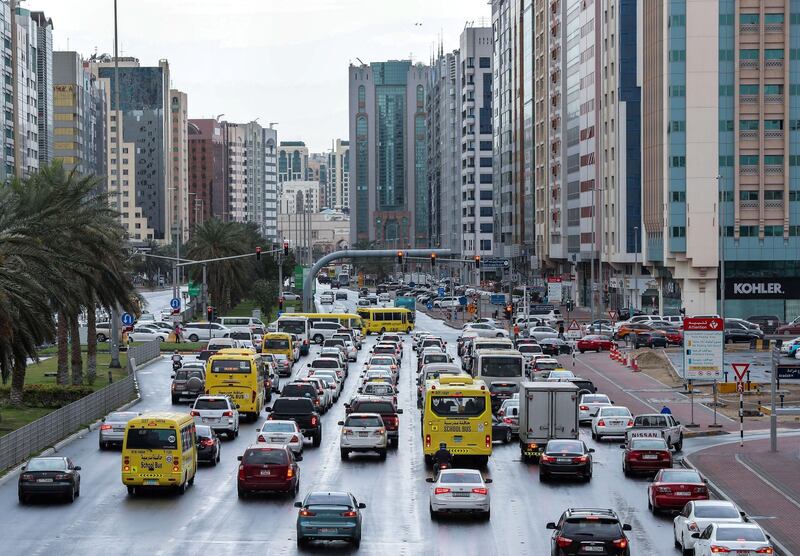All those who drive on this country's hectic roads will be familiar with the significant dangers they pose. Just yesterday a multiple vehicle collision on Sheikh Zayed Road caused lengthy delays to rush hour traffic. For many drivers, the prospect of jams and collisions are an inevitable part of braving the country's highways. According to government figures, there were 525 road deaths in the UAE last year, equivalent to about six in every 100,000 people and more than double the UK figure. Bad driving habits persist in this country, from overtaking without indicating to driving unsafe vehicles and using phones at the wheel. Last year authorities fined more than 5,000 drivers for exceeding speed limits by a staggering 80 kilometres per hour. Most of us will be familiar with the behaviour of such devil-may-care motorists who endanger themselves and those around them. Strides have been made by police forces across the country in recent years but what was missing were financial incentives for safer driving. With new insurance premium reductions for better drivers, that looks set to change. Thanks to regulations introduced earlier this year, drivers with clean records are entitled to policy discounts of between 10 and 20 per cent. This comprehensive strategy – one of carrot and stick – could make this country's roads far less nerve-racking to manoeuvre.
Reckless drivers are needlessly putting lives risk. Speeding accounts for about half the UAE's road deaths. In February Abu Dhabi police announced a buffer allowing motorists to exceed speed limits by 20kph will be phased out. Other laws penalising those who refuse to wear seatbelts – flouted by 7,500 people in Abu Dhabi over a period of two months in 2017 – have been used as the stick with financial penalties. Meanwhile as The National reported, more than 800 drivers were caught driving without a licence last year, many of them children. Dangerous drivers will always try to skirt the rules but a combination of deterrent measures and fines coupled with financial incentives could transform the behaviour of road users, as long as they are properly monitored and implemented by both authorities and insurance companies. That will pay dividends for all concerned in the long run.





